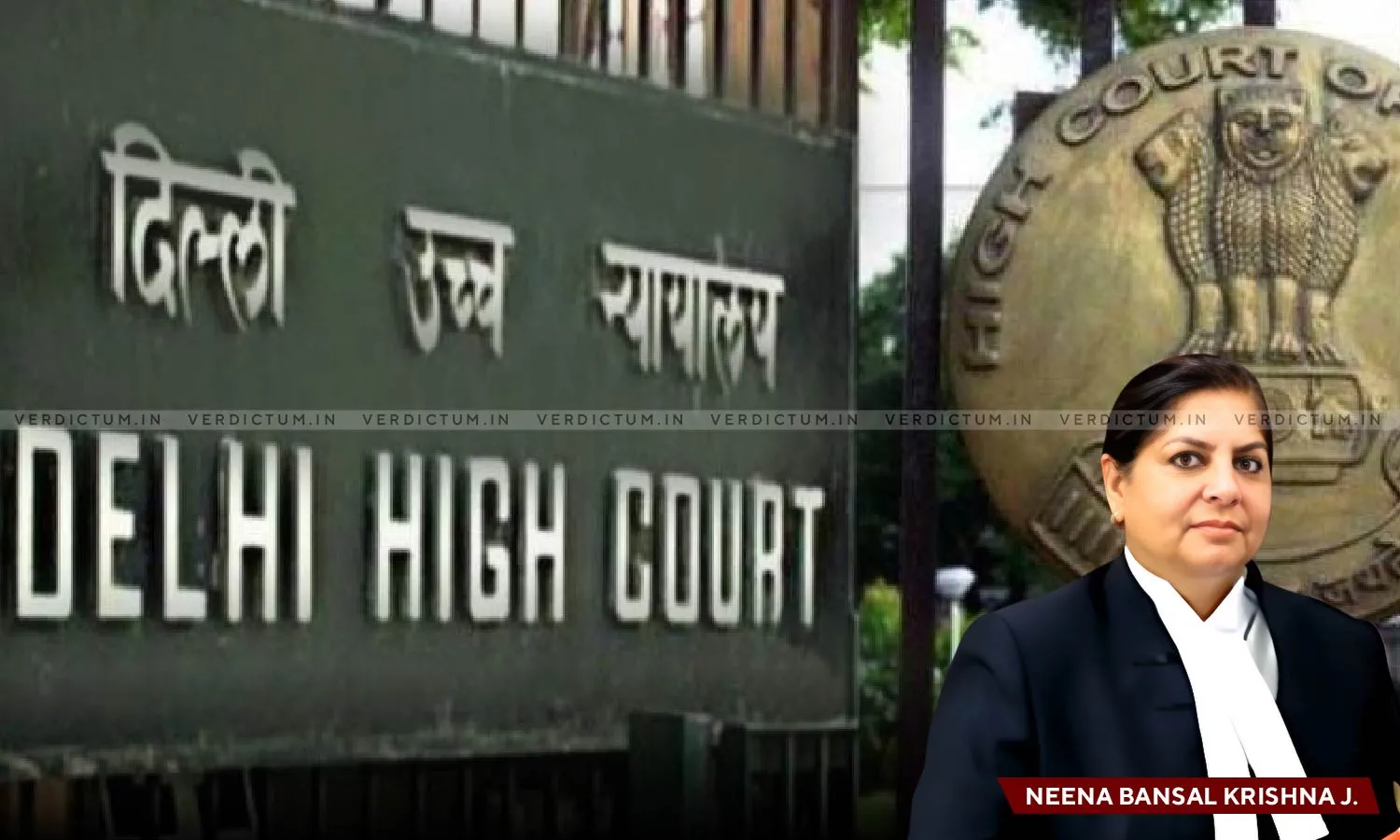Whenever A Person Dies In An Encounter Which Is Alleged To Be Fake, FIR Has To Be Mandatorily Registered: Delhi HC
The Delhi High Court held that the First Information Report (‘FIR’) has to be mandatorily registered whenever a person dies in an encounter which is alleged to be fake.
The Bench of Justice Neena Bansal Krishna observed, “Pertinently, the Apex Court in the case of Lalita Kumari vs. State of Uttar Pradesh ((2013) 14 S.C.R. 713) has mandated that whenever a complaint discloses the cognizable offence, it is imperative to register the FIR in order to further investigate if the evidence so collected, establishes the commission of offence. The registration of FIR is only to facilitate the investigations, there is no mandate that Charge Sheet would be the inevitable end result would be the filing of Charge Sheet; the investigations can even lead to a Closure Report. Therefore, for directing the registration of FIR, what was necessary was that the encounter killing was shrouded with suspicious circumstances…In the light of aforesaid judgments, it is held that the law mandates that whenever a person dies in an encounter which is alleged to be fake, the FIR has to be mandatorily registered.”
Senior Advocates Meenakshi Arora, Siddhartha Dave and Huzefa Ahmad appeared for the parties.
A petition was filed under Section 482 of the Code of Criminal Procedure, 1973, by the Petitioner for setting aside the order by the Special Judge, NDPS and another order passed by the Magistrate allowing the application under Section 156(3) of the Cr.P.C., thereby directing registration of the FIR against the Police raiding Team in respect of the death of one Rakesh in the Police Encounter.
It was alleged that the incident had been thoroughly enquired into by the SDM who in his detailed Enquiry Report had concluded that the bullets were fired by the Police Officials in an act of self-defence to save themselves from the occupant of the car who had fired upon the Police party.
The Court said, “In the wake of various instances of fake encounters by the Police and the increase in the number of persons so killed, instead of subjecting them to the due process of law and that no investigations whatsoever, were made against those who were responsible for these unnatural deaths, there being no enquiry about the role of the police officials and the deceased leading to the unwarranted demise of persons, National Human Rights Commission wrote a a letter dated 29.03.1997 to the Chief Ministers highlighting these aberrations and submitted various recommendations for the correct procedure to be followed by all the States.”
The Court observed that in a Society governed by law, it is imperative that extra-judicial killings are properly and independently investigated so that justice may be done. Reference was made to Sections 174, 175 and 176 of Cr. P.C, 1973 which provides for Magisterial Enquiry in the cases of unnatural death.
The Court relied on the landmark judgments of the Apex Court in People’s Union for Civil Liberties (PUCL) vs. State of Maharashtra (2014), Rohtash Kumar vs. State of Haryana (2013) and M/s Andhra Pradesh Police Officers Association rep. by its General Secretary vs. A.P. Civil Liberties Committee (APCLC) rep. by its president and Others (2019). In PUCL, the Apex Court has held that the Court is not oblivious that police in India have to perform a difficult and delicate task particularly when many hardcore criminals like extremists, terrorists, drug paddlers, and smugglers who have organized gangs, make strong roots in the Society, but then such criminals must be dealt with by the Police efficiently and effectively so as to bring them to justice by following rule of law.
In Rohtash the Apex Court expressed its displeasure as the Court had refused to follow the Guidelines issued by the National Human Rights Commission and a person had died during an encounter by the police, despite which the FIR was not registered. It was observed that two crucial guidelines given by NHRC that the investigations into the encounter death must be done by an independent Investigating Agency and that registration of FIR in case whenever a complaint is made against the Police making a case of culpable homicide, had not been complied with.
The High Court concluded that the ASJ in the impugned order considered in detail the circumstances in which the incident took place and also the post-mortem report. It was observed that there were six injuries on the body of Rakesh, out of which, one was a fire-arm injury and five others were caused due to blunt force. In these circumstances, it has to be established that the deceased was not mercilessly beaten up by the accused. Thus, the Court held that the investigations are required to ascertain whether it was a case of murder or of an encounter.
The Court emphasized, “The learned ASJ thus, rightly concluded that there was enough material to direct the registration of FIR…The second limb of the argument was that no criminal investigations can be carried out against the Public Officer without grant of sanction under Section 197 Cr.P.C.”
Therefore, the Court said that it is established proposition of law requirement of Sanction under S.197 Cr.P.C. is necessary for the acts done by the Official in the discharge of duty and would not scuttle the registration of FIR, as it can be obtained subsequently if the circumstances so warrant.
Accordingly, the Court dismissed the petition.
Cause Title: State of NCT of Delhi v. Puran Singh (Neutral Citation:2024:DHC:5893)
Appearances:
Petitioner: SPP Rajesh Mahajan, Advocates Ranjeeb Kamal Bora and Jyoti Babbar
Respondent: APP Richa Diwan, Advocates Smritee Relan, Shweta Dhingra, Archit Bhardwaj and Hazel Bhardwaj




